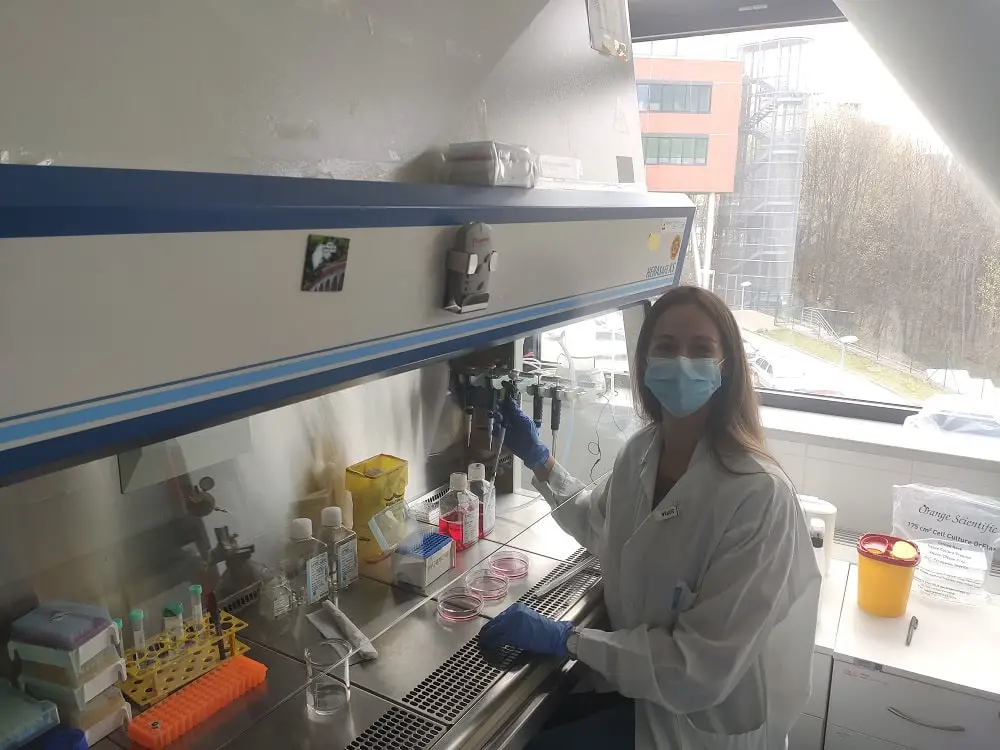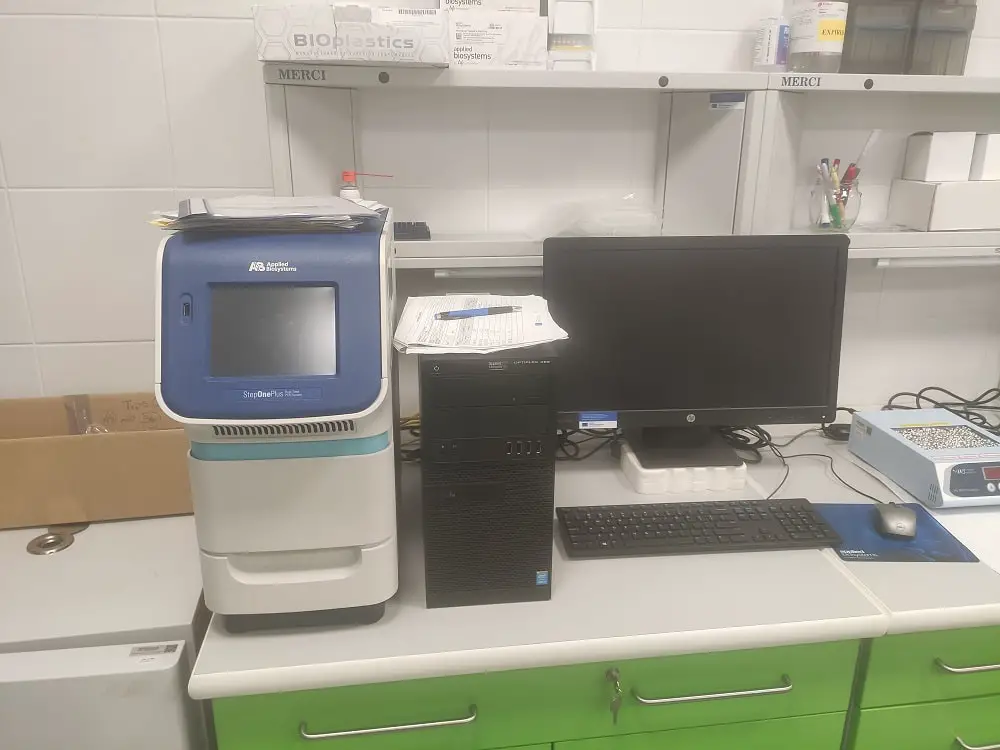Salary, Job Description, How To Become One, and Quiz
.jpg)
Research Scientists
Research Scientists primarily conduct laboratory-based experiments and clinical trials. They also write research papers and reports based on the results of their lab work.
Table of contents
Research Scientists design and complete experiments in laboratory settings. They work in almost every area of science from medical research and pharmacology to meteorology and geoscience. Becoming a Research Scientist often requires specialized knowledge of a scientific field. Research Scientists may earn Bachelor’s degrees, Master’s degrees, or even Doctoral degrees.
Most of the work of a Research Scientist is performed in a lab. They design, set up, and carry out the experiments needed to develop products, solve problems, or improve the health of people or the environment.
What they do
Research Scientists primarily conduct laboratory-based experiments and clinical trials. They also write research papers and reports based on the results of their lab work.
Plan and Conduct Experiments
Research Scientists plan experiments based on the needs of their employers. For example, a Research Scientist working for a pharmaceutical company may design clinical trials to test the effectiveness of new medicine.
Research Scientists help determine what factors to evaluate during the experiment, what equipment is required, and how long the experiment may take. Executives and other Scientists involved in the project may then review the details of the experiment before it is approved and scheduled.
The Research Scientist is then responsible for conducting the experiment and ensuring the integrity of the results. Depending on the seniority of the Scientist, they may supervise a team of Lab Technicians and Junior Research Scientists.
Collect Samples and Carry Out Fieldwork
Before conducting an experiment, Research Scientists may need to collect samples. Samples may come from humans, animals, materials, or plants, depending on the type of research and the industry. When conducting a clinical trial involving human subjects, Research Scientists may work with volunteers in a laboratory. When testing the impact of chemicals on the environment, they may travel to specific locations and collect samples from the field.
While Research Scientists may occasionally perform fieldwork, most of their work is still performed in the lab. Any fieldwork that is required may also be completed by Technicians and entry-level Researchers.
Analyze the Data Obtained During Experiments
After conducting an experiment, Research Scientists need to analyze the results and extract useful data. The information obtained may verify or disprove their original hypothesis. In some cases, the results of the testing may require Research Scientists to repeat the same experiment, such as when the data provides inclusive results.
Write Research Papers and Reports
Research Scientists often write detailed reports and condensed summaries of their findings. When working in academia, the reports are often published for peer review by other Research Scientists. When working in private industries, the results may be supplied to other scientists within the same organization while the summaries are provided to executives and decision-makers.
Continue Your Education
Research Scientists need to stay up to date with the latest developments in their scientific fields, which often involves attending lectures or continuing education (CE) courses. Completing CE courses is also a requirement for some of the certifications commonly held by Research Scientists.
What is the job like

A typical day starts with going over the experimental planning of the day, and then starting the experiments or data analysis, studying, or writing scientific papers. There is some flexibility and some level of control over your day. However, all experiments are very time-consuming and require a constant level of attention to detail, keeping track of your timings, and great planning. Almost every task is time-consuming, from planning the experiments, to doing them, redoing them, analyzing the data, and so on. It is common to be doing more than one experiment at a time and so sometimes the juggling can go wrong.

In the laminar flow hood
My research is focused on studying the molecular mechanisms in the invasion process of breast and lung cancer. In research, we each focus on a very narrow subject, on a specific group or even just a single protein, and try to determine the impact it has on different cellular processes. This helps us find new diagnostic tools, new treatments and potentially even cures.
I, personally, work with different techniques, so there is no specific routine, which is something I enjoy. But for instances, a day could be, starting in the morning with taking care of orders necessary for my research and replying to emails. Then I would go to a laminar flow hood to work with my cell cultures, either to maintain them or to perform experiments on them. After the experiment is done, I could extract protein from my cells, then do protein quantification and prepare the samples to run on what we call gel electrophoresis or Western Blot.
After this experiment is done, I would block and incubate the resulting membranes to evaluate the next day. Other times the experiment could be to fixate my cells and incubate with specific antibodies to visualize using a confocal microscope. Or I could be cloning my cells with specific genes and then tracking their effect using live imaging or some biochemical assay. Other times I will be receiving training in either some specific equipment or technique or in overall topics specific to my fields through webinars and conferences.
Working overtime is also very common and when working with living disease models (cell cultures, mouse models) working the weekends is also normal.
It’s also busy, hard work, and a lot of stress due to the constant stream of deadlines but also rewarding and exciting when you finally get some nice results and definitely always a nice challenge. The great part of doing research is to satisfy curiosity and the challenge of figuring out how to get the answers you seek.

A real-time PCR machine StepOne Plus
Pros
Stimulating job, flexible schedule, the possibility of making a huge contribution to the advancement of medicine.
Cons
Long hours, high levels of mental stress, instability in career progression.
Pros
You Solve Scientific Problems
No matter the industry, Research Scientists are problem-solvers. They get to solve issues and find answers to problems, making it a rewarding career.
You Help Make Things Better
The research completed by Research Scientists may help improve products and processes, which can have a positive impact on the health of people, animals, and even the environment.
You Enjoy Independence
Research Scientists often work with other scientists. However, you also have a lot of freedom to pursue topics of research that interest you. This is especially true when working in academia.
You May Have Travel Opportunities
Depending on the industry, your work may take you to interesting locations to collect samples for experiments.
Cons
You Work Long Hours
Research Scientists often work long days, especially when trying to meet deadlines for experiments.
You May Encounter Unexpected Outcomes
Experiments do not always produce the results that you want, which can be frustrating after working on a long project.
Where they work




Research Scientists either work in academia, industry, or government jobs. Common academic employers include colleges and universities. Government employers include various regulatory agencies. Industry jobs for Research Scientists are available at pharmaceutical companies, food companies, materials companies, manufacturers, chemical companies, and utility providers.
How to become one
Step 1: Study Science in High School
As Research Scientists require knowledge of science, high school students should study science extensively. Biology, Chemistry, Physics, and advanced placement (AP) science courses are all beneficial.
Step 2: Earn a Bachelor’s Degree
Research Scientists typically hold Bachelor’s degrees that are relevant to their chosen field, such as Pharmacology. Biology and Chemistry are also common majors.
Step 3: Earn a Master’s Degree
Many employers require Research Scientists to hold at least a Master’s degree.
Step 4: Find Entry-Level Work
Most Research Scientists start as Laboratory Technicians or Research Assistants before gaining the experience needed for this career.
Step 5: Obtain Certifications
As you gain work experience, you may qualify to obtain various voluntary certifications such as the professional certifications for clinical research available through the Association of Clinical Research Professionals (ACRP).
Should you become one
Best personality type for this career
People with this personality likes to work with ideas that require an extensive amount of thinking. They prefer work that requires them to solve problems mentally.
You can read more about these career personality types here.
Successful Research Scientists are highly focused individuals as the complex experiments that they conduct require superior attention to detail. Research Scientists should also be patient as analyzing samples and running tests are time-consuming processes. Having good communication skills is also useful for ensuring that others follow your instructions and understand the results of your experiments.
Take this quiz to see if this is the right career for you.
Don’t know which career to pursue?
Take the career quiz to find careers that match your personality type.
Take The Career Quiz
.jpg)
